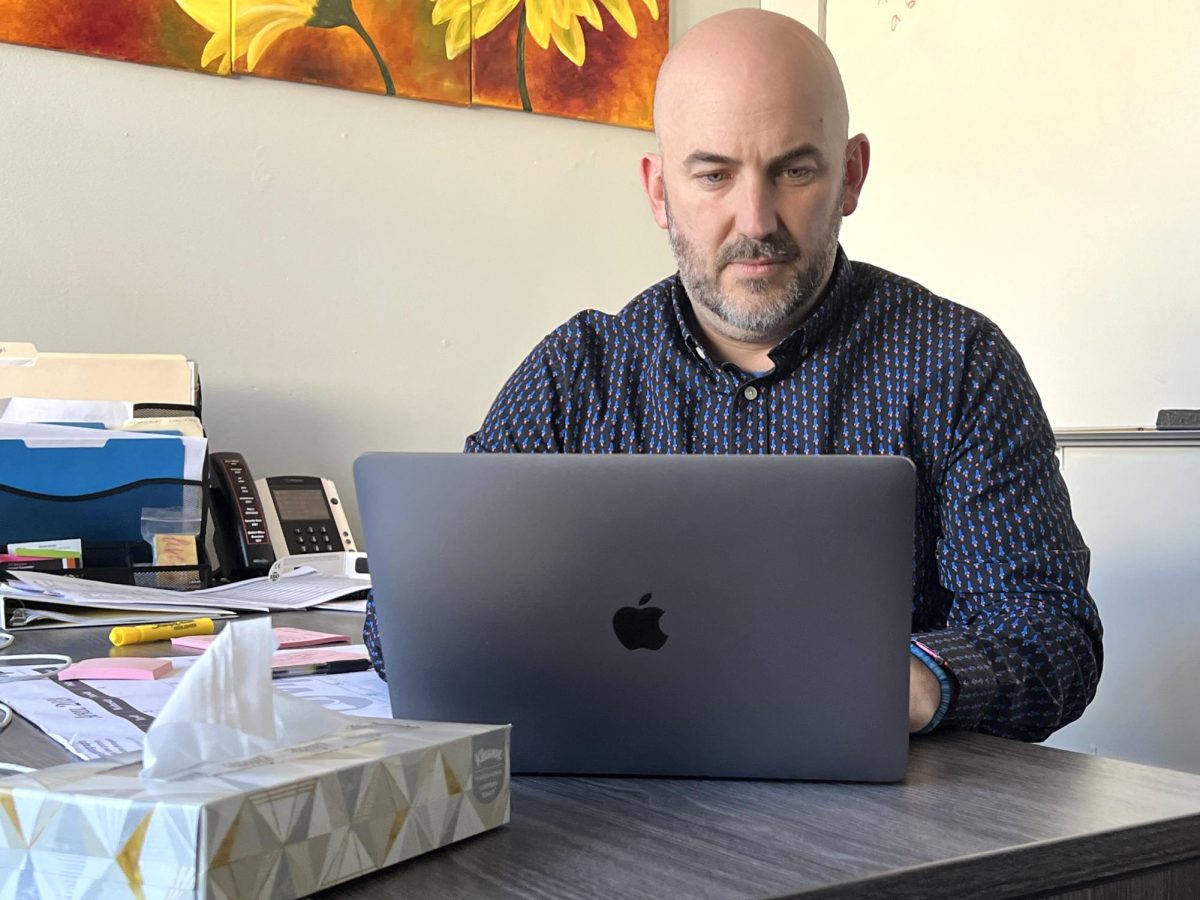A student sits in student services, leg bouncing as they wait for their counselor to finish speaking with the student before them. They open the door, walk out, and the student gets up and walks in, closing the door behind them.
Once high school hits, it is a huge transition from middle school. Students move from classroom to classroom navigating the crowded hallways, having so much more homework, and it is just very stressful overall. This is where most students’ mental health goes downhill. Luckily, MCHS Freshman Campus has many resources for students going through mental health crises.
“Students have access to the entire student services team,” said social worker at MCHS Veronica Eggert. “So we have two counselors […] and then there’s myself and Miss [Kristine] Nichols, our school psychologist and we also have a Social Work intern this year.”
MCHS has a ton of resources, and the student service team tries their best to help students through or with their mental health crises.
“Students can come down on their own and check in with us if they need something,” said Eggert. “We kind of get access to the students just in very different ways and Administration might even say ‘hey this is a student who seems to be struggling’ so we definitely have the ability here to work through that.”
JR Bocian, another social worker at MCHS, sheds a light on why students might struggle or not want to reach out for help.
“I think sometimes it’s easier to complain about things than it is to want to fix them,” said Bocian. “I think sometimes kids are real quick to share with their friends what they’re doing. And I think a lot of times adults feel like it’s bragging about certain situations, when in reality, it’s in my eyes, it’s reaching out for help. […] I think a lot of times, kids aren’t always built to trust because a lot of times […] the trust has been broken at some point. And it’s really hard to rebuild that. And so just trying to, as a neutral party, know that we’re advocating for students and trying to do best for them, I think that’s important for them to understand.”
MCHS has support systems for teachers and other staff members going through mental health struggles as well.
“There is a program called EAP, which is like an employee assistance program, because bad things aren’t only confined to students, adults go through bad things as well … and so those are typically located in bathrooms, staff bathrooms, … the teacher’s lounge, [and it] has a number that they could call if they’re struggling with anything really,” said Bocian. “It’ll hook them up with counseling or just basically someone that’s there. I think a lot of times we do have teachers that are going through things that might come down here and check in and sometimes it’s a check in about students, but in reality, it’s just a check in for them. And that’s okay, as long as people are getting the help that they need.”
Although it is hard to reach out for help, it is important because taking care of your mental health is one of the most important things you can do for yourself.
Bocian recognizes this, and says, “I’d be lying if I said it’s so easy to do. It’s not but I would go to your trusted adult, whoever that is, if it’s a teacher, counselor, whoever and just let them know that you have something to share. Find the time and trust the process. If you’re ready to get help, I would say you just have to embrace it. […] It’s kind of like the onion analogy, where you’re peeling back different layers, and eventually going to get to the root of the problem and then be able to kind of deal with that so that everything else can fix itself and I think that that’s that’s the important part.”
The student walks out of their counselors office feeling much better. They head back to class head held high.











